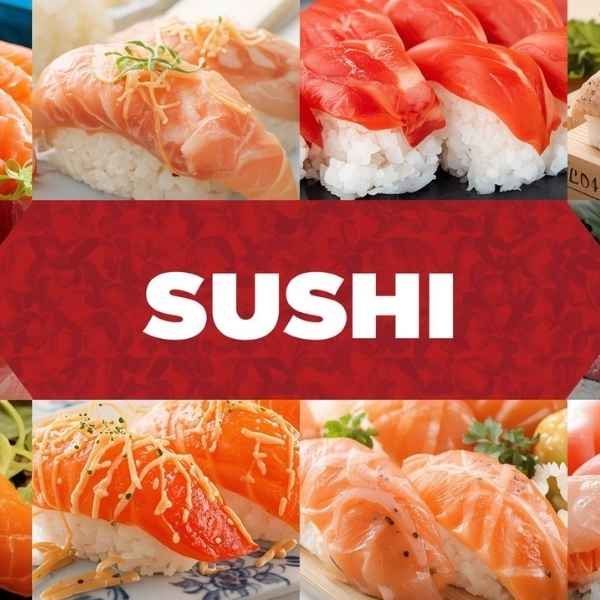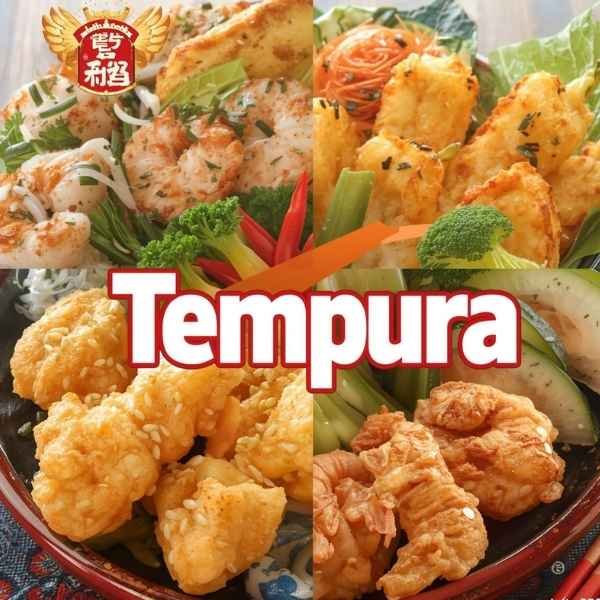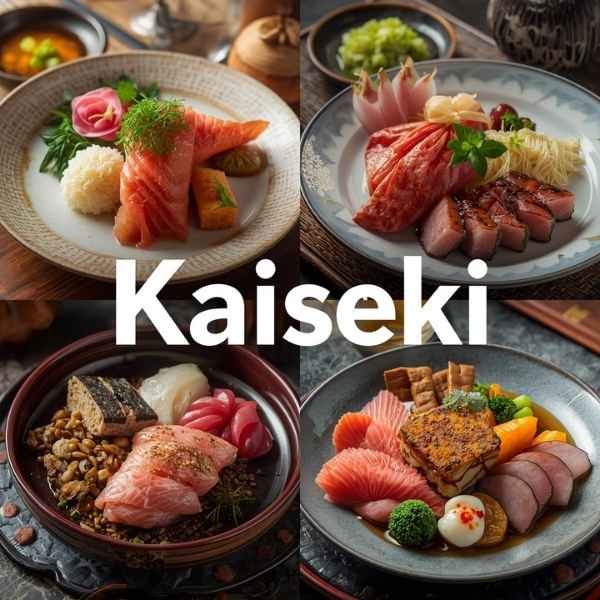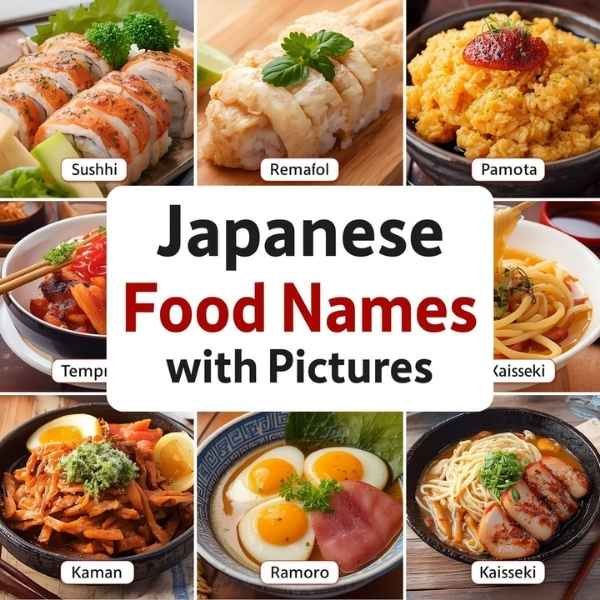
Delicious Japanese Dishes: A Culinary Journey Through Japan
Japan’s culinary landscape is one of the most diverse and celebrated in the world. With an emphasis on freshness, seasonal ingredients, and balanced flavors, Japanese dishes have captured the hearts of food lovers globally. From street food to fine dining, Japan’s cuisine offers a rich tapestry of tastes, textures, and presentations. In this article, we explore iconic Japanese dishes, their cultural significance, and practical tips to enjoy authentic Japanese flavors at home or in restaurants.
The Essence of Japanese Food Culture
Japanese cuisine is not just about eating; it’s an experience that reflects the country’s culture, history, and geography. Known for its meticulous presentation and attention to detail, Japanese food culture emphasizes harmony, simplicity, and seasonal ingredients. Meals are often balanced with rice, soup, pickles, and a main protein, creating a wholesome and nutritious dining experience. Beyond taste, Japanese dishes are visually appealing, turning every meal into an art form.
Read More-: https://youtu.be/CMxj69STwX0?si=lT1PSWv3fqHztVO8
Top Japanese Dishes to Try
Explore these iconic Japanese dishes that define Japan’s rich culinary culture. Each dish offers unique flavors, textures, and traditions, making Japanese cuisine a delight for food lovers.
1. Sushi
Sushi is perhaps the most internationally recognized Japanese dish. It consists of vinegared rice paired with fresh seafood, vegetables, or even egg. Sushi is celebrated for its simplicity, freshness, and delicate balance of flavors. There are several types, including nigiri (rice topped with fish), maki (rolled sushi), and temaki (hand rolls). Sushi is not just food but an art form, where presentation, texture, and taste are equally important.
Explore the flavors of Japan with our curated list of 10 Japanese Dishes that every food lover must try.

2. Sashimi
Sashimi refers to thinly sliced raw fish or seafood, served with soy sauce and wasabi. Unlike sushi, sashimi focuses solely on the quality and purity of the raw ingredients. Common types include tuna, salmon, and squid. The dish highlights Japan’s emphasis on freshness and precise knife skills, making it a favorite among those who appreciate the delicate taste of raw seafood.
3. Ramen
Ramen is a hearty noodle soup that has taken the world by storm. It comes in various broths such as miso, shoyu (soy sauce), and tonkotsu (pork bone). Toppings may include sliced pork, boiled eggs, seaweed, and vegetables. Ramen has countless regional variations in Japan, each offering unique flavors and styles. It’s a comfort food for many and a perfect choice for dinner.
Improve your professional communication skills by learning how to Write Emails and Letters in Japanese effectively.
4. Tempura
Tempura is a dish where seafood or vegetables are lightly battered and deep-fried until crispy. Originating in the Edo period, tempura is known for its delicate, airy crust and tender interior. It is often served with a dipping sauce and grated daikon. Tempura can be enjoyed in casual street stalls or in refined restaurants, showcasing the versatility of Japanese cuisine.

5. Okonomiyaki
Okonomiyaki is a savory pancake made with cabbage, meat, seafood, and a flour-egg batter. It is typically topped with okonomiyaki sauce, mayonnaise, bonito flakes, and green onions. Particularly popular in Osaka and Hiroshima, the dish allows for customization (“okonomi” means “as you like”), making it a fun and interactive dining experience.
6. Takoyaki
Takoyaki are ball-shaped snacks filled with diced octopus, green onion, and tempura scraps. They are cooked in a special molded pan, resulting in a crispy exterior and soft, flavorful interior. Often drizzled with takoyaki sauce and mayonnaise, they are a popular street food throughout Japan and a favorite at festivals and casual gatherings.
7. Yakitori
Yakitori refers to skewered grilled chicken seasoned with salt or tare (a sweet soy-based sauce). It is commonly served in izakayas (Japanese pubs) and is perfect for casual dining or as a snack with drinks. Different parts of the chicken, including thigh, breast, liver, and skin, are used, offering a variety of flavors and textures in every bite.
Make language learning fun and interactive with our collection of Japanese Learning Games.
8. Udon
Udon consists of thick wheat noodles served in hot broth or stir-fried with vegetables and meat. Known for its chewy texture and hearty nature, udon is widely enjoyed across Japan. It can be served in simple soy-based broth, curry udon, or with tempura toppings. Udon is comforting, filling, and ideal for both casual and formal meals.
9. Miso Soup
Miso soup is a traditional Japanese soup made with miso paste, tofu, seaweed, and green onions. It is often served as a side dish with meals and is valued for its umami flavor. Miso soup reflects the Japanese philosophy of balance, providing warmth, nutrition, and a subtle depth of taste that complements other dishes in a meal.
10. Kaiseki
Kaiseki is a multi-course haute cuisine meal that showcases seasonal ingredients, artistic presentation, and a harmony of taste, texture, and color. Traditionally served in ryokans (Japanese inns) or specialized restaurants, kaiseki is considered the pinnacle of Japanese culinary artistry. Each dish is carefully prepared to reflect nature, seasonality, and aesthetic balance, offering a luxurious dining experience.

50 Most Popular Japanese Food
In addition to the top 10 dishes, Japan offers a vast array of popular Japanese dishes worth exploring. These include Tonkatsu (breaded pork cutlet), Gyoza (dumplings), Onigiri (rice balls), Shabu-Shabu (hot pot), and Curry Rice. For anyone seeking a comprehensive Japanese dishes list, these selections provide a diverse range of flavors and textures for both casual meals and festive occasions.
Prepare thoroughly for your upcoming exam with our detailed NAT Japanese Test November 2025 guide.
Japanese Food Names with Pictures
Visuals play a significant role in understanding Japanese cuisine. Many food guides provide Japanese food names with pictures, helping beginners recognize dishes, ingredients, and serving styles. From colorful sushi rolls to golden tempura, these images enhance appreciation and make it easier to order or prepare authentic dishes.

Japanese Dishes for Dinner
Japanese cuisine offers versatile options for dinner. Noodle soups like ramen or udon, grilled meats like yakitori, and comfort dishes like donburi (rice bowls) provide hearty and satisfying meals. Many restaurants and home-cooked meals balance flavors, nutrition, and presentation, making Japanese cuisine ideal for family dinners or special occasions.
Japanese Food Menu
A typical Japanese food menu offers a variety of starters, main courses, and desserts. Starters might include edamame, gyoza, or miso soup. Main courses often feature sushi, ramen, udon, or tempura. Desserts range from mochi and dorayaki to matcha ice cream. Seasonal specialties and regional variations are also highlighted, reflecting Japan’s rich culinary diversity.
Learn casual and polite greetings by reading our guide on How Are You in Japanese Language.
FAQ – Japanese Dishes
1.What are the top 10 Japanese foods?
The top 10 Japanese foods include sushi, sashimi, ramen, tempura, okonomiyaki, takoyaki, yakitori, udon, miso soup, and kaiseki. These dishes are not only iconic but also widely enjoyed across Japan, reflecting a variety of flavors, cooking styles, and regional specialties. They represent both casual meals and traditional haute cuisine.
2.What is the popular Japanese dish?
Sushi stands out as the most popular Japanese dish globally, loved for its fresh ingredients, simplicity, and delicate taste. Ramen, with its rich broths and variety of toppings, and tempura, known for its crispy texture, are also highly popular among locals and international visitors alike.
3.What is Japan's #1 food?
Rice-based dishes, such as sushi and onigiri, are considered Japan’s most iconic foods. Rice is central to Japanese meals, forming the foundation of most dishes, and is deeply ingrained in Japanese culture, representing nourishment, tradition, and culinary identity.
4.Why is Japanese food famous?
Japanese food is celebrated worldwide for its emphasis on freshness, high-quality ingredients, and meticulous preparation. The cuisine balances nutrition, taste, and aesthetics, often highlighting umami flavors and seasonal produce, making it both healthy and visually appealing.
5.What is Japan's national dish?
While Japan has many traditional dishes, sushi is often regarded as the national dish due to its cultural significance and global recognition. It represents the country’s culinary heritage and attention to detail, from rice seasoning to the artful presentation of fresh seafood.
6.What is tempura?
Tempura is a classic Japanese dish where seafood or vegetables are lightly battered and deep-fried until crispy. Known for its delicate texture and subtle flavors, tempura is usually served with a dipping sauce called tentsuyu and can be enjoyed as part of casual meals or formal dining.
7.Are Japanese dishes healthy?
Yes, Japanese cuisine is typically low in fat and rich in protein, with a strong emphasis on vegetables, fish, and fermented foods. Traditional meals are balanced, often including miso soup, rice, and seasonal ingredients, making Japanese dishes a nutritious choice for daily consumption.
8.What is kaiseki in Japanese cuisine?
Kaiseki is a refined, multi-course meal that highlights seasonal ingredients, artistic presentation, and harmony of flavors, textures, and colors. Often served in formal settings, kaiseki reflects the pinnacle of Japanese culinary craftsmanship and the philosophy of balance and elegance in dining.
9.Can I find Japanese dishes outside Japan?
Absolutely! Japanese cuisine has gained worldwide popularity, and many countries now have restaurants serving authentic dishes like sushi, ramen, tempura, and gyoza. These dishes are often prepared by chefs trained in traditional Japanese techniques, ensuring an authentic dining experience.
10.How do Japanese meals reflect culture?
Japanese meals emphasize balance, respect, and harmony with nature. The careful arrangement of food, portion sizes, seasonal ingredients, and attention to presentation all reflect Japan’s cultural values, including mindfulness, aesthetics, and appreciation for the natural world.
Enhance your conversational skills with commonly used expressions from Common Japanese Idioms.
Conclusion
Japanese cuisine offers a vibrant and diverse culinary journey. From iconic Japanese dishes like sushi, ramen, and tempura to unique regional specialties, the flavors, textures, and presentation showcase the rich culture of Japan. Whether enjoying a traditional kaiseki meal or sampling street food like takoyaki, each dish offers a glimpse into Japan’s culinary heritage. For those eager to explore authentic Japanese cuisine, understanding popular dishes, food culture, and dining traditions makes the experience even more rewarding.